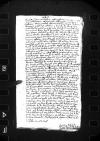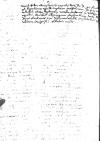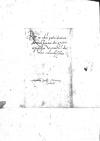Mensis iam intercessit, cum dimisi ⌊Psittacum⌋, quin pridem advolaverit, non dubito. Interea temporis nihil est allatum a Vestra Reverendissima Dominatione, quae scire procul dubio cupit, quae hic acta sint.
Fuit ⌊Constellatus⌋ non paucos dies apud ⌊primatem⌋, in magno apud eum honore habitus. Prodisse illi subinde adventanti obviam dicitur ad gradum usque, quod vix etiam primariis facit consiliariis; necessaria ad victum omnia affatim suppeditasse. Post plurima secreta colloquia misit ⌊eum⌋ tandem ad aulam. Huc cum venisset, postridie quam venerat, accessit tamen ad ⌊reverendissimum dominum⌋ sub horam prandii. Nihil ⌊is⌋ fecit eiusmodi, quale ⌊primas⌋; habito nihilominus secreto cum ⌊eo⌋ colloquio, prandio eum excepit. Ex eo tempore non venit amplius in aedes illius, praeterquam cum valediceret. Bis apud
s(erenissimam) or s(acram)⌈s(erenissimam)s(erenissimam) or s(acram)⌉
⌊maiestatem regiam⌋ secretam habuit audientiam semotis omnibus arbitris. Apud ⌊reginalem maiestatem⌋ in summa esse gratia dicitur. Quibus de rebus egerit, nos nescimus. De bonis quidem ⌊Puczko⌋ non obtinuit, quod petebat. Privatis in causis suis aliquid fortasse profecit. De burgrabiatu quid written over n⌈ndd written over n⌉ actum sit, dubium non est, utrum impetratum aliquid, incertum. Quod magnorum regum oratoribus non contingit, quamlibet secretam habeant legationem, absque procancellario expeditus est. Ita fit, quae conduntur ab uno, destruuntur ab altero. Gloriabitur procul dubio cum ad suos redierit, neque non habet, unde glorietur. Multa de se promittit, si factus sit burgrabius: omnia restituta iri in statum pristinum, ⌊Pancratium⌋ ex ⌊urbe⌋ exterminatum iri. Quae si praestaret, esset tanti munus hoc illi mandari. Mihi dixit, se delatum esse ⌊reverendissimo domino⌋ ac mihi quoque, sed praeter meritum suum. Hac ipsa de re egit cum ⌊reverendissimo domino⌋. Ego cum negarem scire me quicquam, certo se cognovisse respondit, ac scire se, per quem sit delatus.
Haec scribenda Reverendissimae Dominationi Vestrae putavi, cui et nova mitto, quae a ⌊Baptista⌋ Italo servitore reverendissimi domini missa huc sunt, qui duobus tantum affuit milliaribus a loco, ubi proelium est consertum.
Deum precor, ut Reverendissimam Dominationem Vestram diu servet incolumem et felicem. Cuius me gratiae commendo.



 AAWO, AB, D. 19, No. 35_3
AAWO, AB, D. 19, No. 35_3